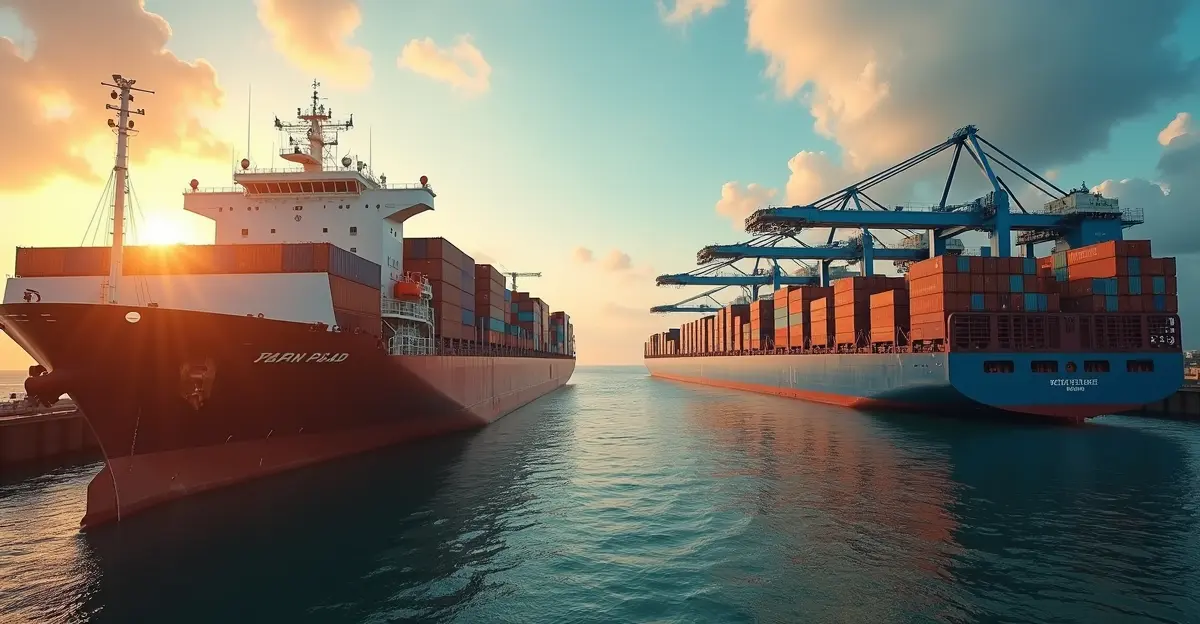Trade War Winners Emerge as Global Alliances Shift
The global trade landscape is undergoing a dramatic transformation in 2025, with traditional alliances being redefined and new economic winners emerging from the chaos of escalating trade conflicts. As the United States implements sweeping tariffs reaching up to 60% on Chinese goods and imposes new duties on traditional allies like the EU, Mexico, and Canada, countries are scrambling to adapt to the new reality of protectionist policies.
Vietnam and Mexico: The Manufacturing Powerhouses
Vietnam has emerged as one of the biggest beneficiaries of the US-China trade tensions. Since 2018 when former President Trump first imposed tariffs on Chinese goods, Vietnam has transformed into a major manufacturing hub, attracting global tech giants like Samsung, Dell, HP, Microsoft, and Google. Today, one-third of Vietnam's exports go directly to the United States, making it a crucial alternative to Chinese manufacturing.
Mexico has similarly capitalized on its geographic proximity and the USMCA trade agreement, overtaking China in 2023 to become the leading exporter of goods to the United States. "The trade war has forced companies to rethink their supply chains, and Mexico's strategic location has become its greatest asset," explains trade analyst Maria Rodriguez.
BRICS+ Emerges as Counterweight
The BRICS alliance, now expanded to include Egypt, Ethiopia, Iran, UAE, and Indonesia, is emerging as a powerful counterweight to Western economic dominance. Representing 45% of the world's population and 35% of global GDP, the expanded BRICS+ bloc is actively creating alternatives to US-dominated financial systems.
"Trump's tariffs have unified the BRICS countries as never before," notes international relations professor Dr. James Chen. "Ironically, the very policies meant to weaken these nations have strengthened their cooperation and resolve."
India has particularly benefited from this realignment, strengthening ties with Russia and increasing bilateral trade from $3 billion in 2021 to $68 billion in 2024-25. The country is also pursuing closer relations with China through resumed trade routes and diplomatic engagement.
Brazil's Agricultural Advantage
Brazil finds itself in an advantageous position with relatively low 10% "reciprocal" U.S. tariffs compared to harder-hit nations like Bangladesh (37%) and Vietnam (46%). The country's agricultural sector stands to benefit significantly from China's retaliatory tariffs against U.S. farm exports.
"Brazil's agricultural exports are positioned to fill the gap left by restricted U.S. access to Chinese markets," says agricultural economist Dr. Carlos Silva. "This represents a major opportunity for Brazilian farmers and exporters."
Regional Partnerships Gain Importance
The EU is pursuing "strategic autonomy," balancing ties with both China and the US while implementing tech restrictions on Chinese companies under US pressure. Meanwhile, countries like Singapore, Egypt, and Turkey are finding niches where they can compete effectively despite the challenging trade environment.
Singapore, despite its heavy trade reliance, is benefiting from investment diversification as companies seek stable alternatives. Egypt sees opportunities in textiles as competitors face higher barriers, while Turkey's trade minister described their tariff situation as the "best of the worst" compared to other nations.
The Future of Global Trade
As global trade reached a record $33 trillion in 2024, the landscape is shifting toward multi-currency systems and regional partnerships. The BRICS+ currency initiative, backed by commodities like gold and oil, aims to reduce USD dependency, while countries increasingly assert sovereignty and build relationships based on mutual respect rather than convenience.
"We're witnessing a fundamental redistribution of global economic power," concludes global trade expert Sarah Johnson. "The winners in this new era will be those nations that can adapt quickly, form strategic partnerships, and leverage their unique advantages in a fragmented global market."

 Nederlands
Nederlands
 English
English
 Deutsch
Deutsch
 Français
Français
 Español
Español
 Português
Português










